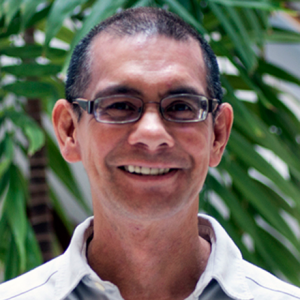People
Tim Willson
Chief Scientist, Research Professor
Tim Willson is chief scientist of the SGC-UNC, an open-discovery network for protein kinases based at the UNC Eshelman School of Pharmacy. He has more than 25 years of experience in pharmaceutical research with a track record in discovery of first-in-class clinical candidates. Throughout his career, Willson has been an advocate for research on pioneer drug targets. He led the Glaxo program on orphan nuclear receptors that uncovered their role in regulation of human metabolism and was co-discoverer of obeticholic acid, a breakthrough medicine for liver diseases targeting FXR. Willson has been a long time supporter of precompetitive chemistry in early drug discovery and was a scientific founder of the SGC Epigenetic Chemical Probes project. He is widely recognized for scientific leadership in chemical biology and was named one of the world’s 400 most influential biomedical researchers. Outside of science, Willson enjoys the challenge of long course triathlons and has completed eleven Ironman 70.3 distance races.
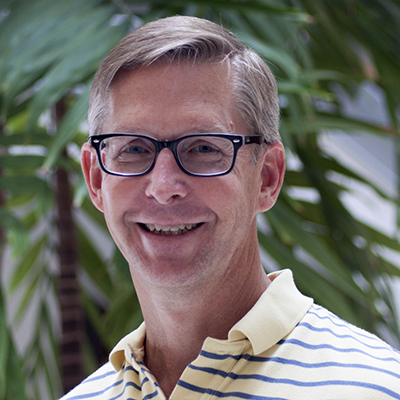
David Drewry
Research Associate Professor
David Drewry, Ph.D., is a renowned leader in the medicinal chemistry of protein kinases and is one of the principal architects of the research strategy at the SGC-UNC to build an open and collaborative research network to promote target discovery. He previously enjoyed more than 24 years as a medicinal chemist with GlaxoSmithKline and legacy companies, where he led teams working across the preclinical spectrum of drug discovery. His research interests include the art and science of medicinal chemistry, kinase inhibitor design, utilization of annotated sets of kinase inhibitors to build understanding of signaling networks and precompetitive chemical biology to facilitate target identification. After earning a Bachelor’s of Science degree, cum laude, in chemistry from Yale University, Drewry earned his doctorate at the University of California, Berkeley in the laboratory of Paul Bartlett, working on the design, synthesis and mechanistic studies of zinc protease inhibitors. Drewry spent one year as the head of chemistry at Meryx Pharmaceuticals, a biotech startup focused on small-molecule inhibitors of Mer kinase that was a spinoff from the UNC Eshelman School of Pharmacy.
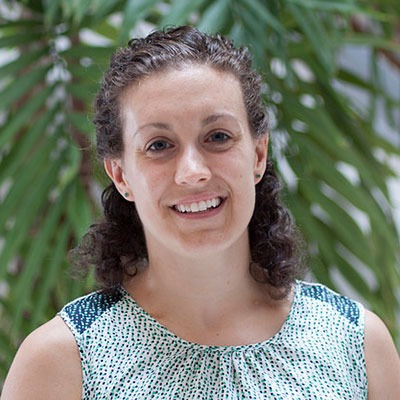
Alison Axtman
Research Associate Professor
Alison Axtman, Ph.D., is a principal investigator in medicinal chemistry at SGC-UNC and research associate professor in the Division of Chemical Biology and Medicinal Chemistry Department in the UNC Eshelman School of Pharmacy. Her interests lie at the interface of chemistry and biology, with a focus on using small molecules to explore and impact disease-propagating biological pathways, especially those that cause neurodegenerative diseases. Active projects are aimed at finding pre-clinical small molecule candidates that address the need for new therapeutics in the areas of amyotrophic lateral sclerosis (ALS) and Alzheimer’s disease (AD), among others. She joined SGC-UNC after working at GlaxoSmithKline on the Chemical Biology team at the RTP site. Before that, Axtman completed her doctorate at the University of Kansas in the Department of Medicinal Chemistry with Brian Blagg and postdoctoral studies at Stanford University in the laboratory of Paul Wender. She is eager to enable the efforts of other investigators through sharing high-quality small molecule tools to speed the drug discovery process and more quickly help patients in need. Bibliography Link
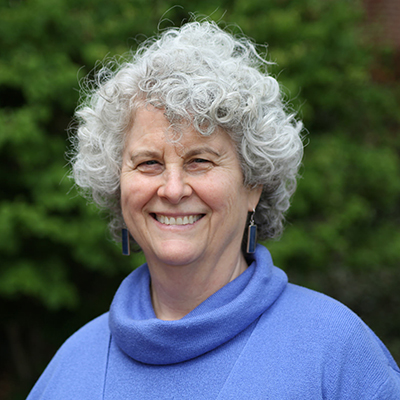
Kim Swain
Center Administrator
Kim Swain moved to NC in 2015, after living in Vermont for 40 years. She previously worked in the field of Physician Recruitment at the University of Vermont Department of Surgery and Saint Francis Hospital in Hartford, CT.
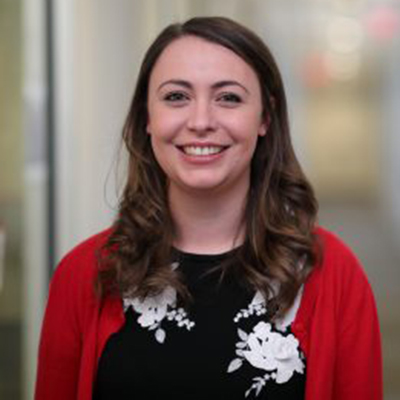
Frances Bashore
Postdoctoral Research Associate
Frances obtained her Master of Chemistry degree from the University of Liverpool, UK, and completed her PhD in Medicinal Chemistry under the supervision of Dr Craig Jamieson at The University of Strathclyde, UK. She continued research as a Chemical Biology Postdoctoral Research Associate in the Center for Integrative Chemical Biology and Drug Discovery (CICBDD) at UNC under the supervision of Prof Stephen Frye and Prof Lindsey James. Postdoctoral research focused on the design, synthesis, and biological evaluation of Proteolysis Targeting Chimeras (PROTACs) for epigenetic regulators such as Polycomb Repressive Complex 2 (PRC2).
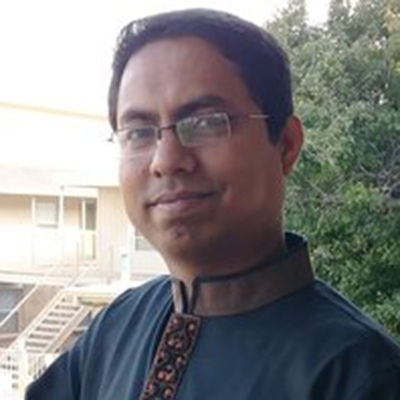
Anwar Hossain
Postdoctoral Research Associate
Anwar obtained his Master of Pharmacy degree in Pharmaceutical Chemistry from the University of Dhaka, Bangladesh. He completed his Doctor of Philosophy degree from Texas Tech University Health Sciences Center, Department of Pharmaceutical Sciences, Amarillo, Texas, USA. During his Ph.D. program, Anwar worked under the supervision of Dr. Nadezhda German to develop bioactive small molecules. His doctoral research involved the design, synthesis, and in-vitro assay of quorum-sensing inhibitors. The structure-activity relationship studies of fungal metabolite gliotoxin guided him to develop novel opioid receptor antagonists. He has significant experience in the design, synthesis, characterization, and biological evaluation of small molecules.
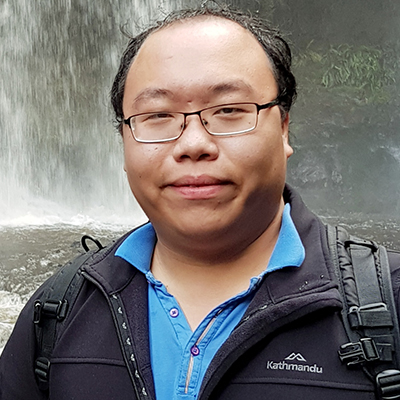
Han Wee Ong
Doctoral Student
Han Wee graduated from the National University of Singapore with a Bachelor in Science (Honors) in 2019 with a major in chemistry. He is interested in medicinal chemistry and is currently a second-year PhD student in the SGC-UNC
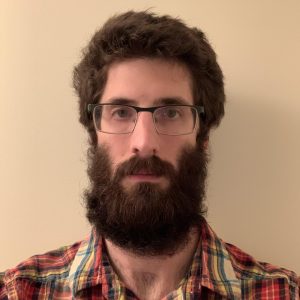
Zachary Davis-Gilbert
Postdoctoral Research Associate
Zach earned his bachelor’s degree from Appalachian State University. Post-Baccalaureate he spent one year working at GlaxoSmithKline in RTP, working on PKIS under the tutelage of Carrow Wells and Dr. David Drewry. Afterwards he received a Ph.D. in Organometallics from the University of Minnesota where his research was focused on titanium catalyzed C-N bond-forming reactions.
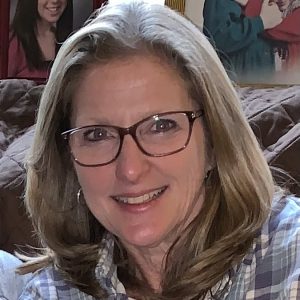
Tammy Havener
Senior Research Associate and Lab Manager
Tammy Havener has over 30 years of experience in cellular and molecular biology. She spent the first 15 years at Duke University studying the interaction of cell surface proteins with components of the fibrinolytic system and tumor angiogenesis before coming to UNC. At UNC she ran the Cellular Phenotyping facility where they developed high throughput phenotyping for assessing heritability in all types of cell systems. Tammy joined the Catalyst for Rare Diseases in 2016 and she was a key contributor to the work being performed on ARSACS. She joined SGC-UNC in June of 2021 to investigate the biological mechanisms of understudied proteins.
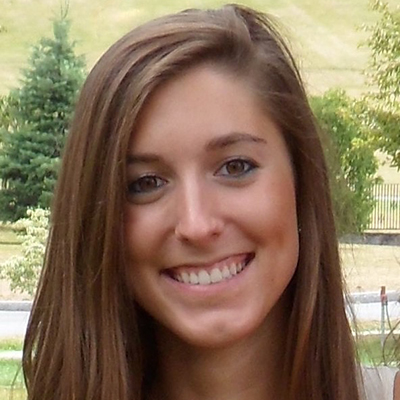
Stefanie Howell
Research Associate
Stefanie received her Bachelor’s degree and Master of Science degree from NC State University in Biology. She has worked as a Research Associate at the University of North Carolina since 2015 and joined SGC-UNC in July 2021. She has extensive research experience in cellular and molecular biology and is skilled in laboratory techniques specifically used for investigating the role of genetic mutations in human disease.
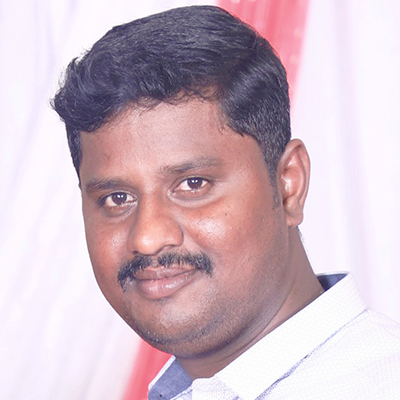
Nandakumar Meganathan
Postdoctoral Research Associate
Nandakumar earned his Ph.D. in 2015 with the guidance of Prof. A. K. Mohanakrishnan at the University of Madras, India. After graduation, he moved to NTHU, Taiwan to explore organometallic synthesis with Prof. Yun Chi. Then he moved University of Bristol, UK as a Marie-Curie postdoctoral research fellow to peruse research on lithiation-borylation chemistry with Prof. Varinder. K. Aggarwal. Then he pursued further postdoctoral research with Prof. Jennifer L. Roizen at Duke University to explored photoredox-mediated strategies. He joined the SGC-UNC in July 2021.

Benjamin Strickland
Doctoral Student
Benjamin graduated from Drew University with a Bachelor of Arts (Honors) in 2021 with a major in biochemistry and molecular biology. During his undergraduate, his thesis focused on methods of targeting the cellular division protein FtsZ for the treatment of multidrug-resistant S. aureus in Dr. Vincent Gullo’s lab. He joined SGC-UNC in 2022 and is a first-year Ph.D. student in the Chemical Biology and Medicinal Chemistry program.
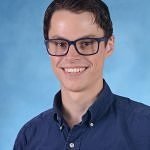
Jacob Capener
Doctoral Student
Jacob obtained his Bachelor’s degree in chemistry from the University of Utah. During his undergraduate, he studied cellular signaling mechanisms within the Hedgehog pathway in Benjamin Myers’ lab. He joined the SGC in 2022 and is a first-year Ph.D. student in the Chemical Biology and Medicinal Chemistry program.
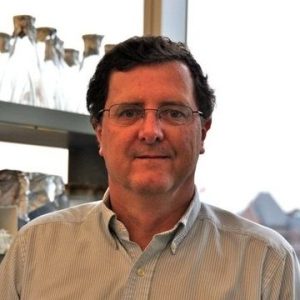
Peter J Brown
Research Project Manager
Peter received his Ph.D. in Organic Chemistry from the University of Sheffield and performed postdoctoral research at Indiana University with Philip Magnus culminating in the total synthesis of (-)-Pleiomutine, a bis-indole alkaloid. Prior to joining the SGC in 2009, Peter spent nineteen years at GlaxoSmithKline in various roles, most recently Section Head, Medicinal Chemistry, and was focused on the early Hit-ID phase of Drug Discovery and finding tool compounds for the Nuclear Receptor family of proteins. Peter’s research interests include using HTS, target-focused arrays, DNA Encoded Libraries, and fragment-based methods to discover probes for novel targets. SGC-Toronto has contributed 28 chemical probes, mostly for epigenetic targets.
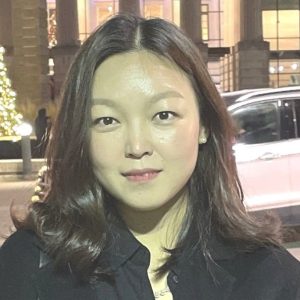
Sophia Min
Postdoctoral Research Associate
Sophia obtained her Master of Chemistry degree from Konkuk University, South Korea. She completed her PhD under the supervision of Dr. Jiyong Hong at Duke University and spent one more year as a research associate at Duke studying the development of inhibitors targeting mutagenic translesion synthesis and LpxH enzyme of lipid A biosynthesis. She joined the SGC-UNC in May 2022.
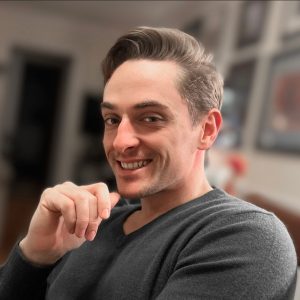
Brian Anderson
Doctoral Student
Brian received his bachelor’s degree in Biology with a minor in neuroscience from SUNY Albany, where he did undergraduate research in behavioral neuroscience/ brain metabolism. Upon graduation Brian took a laboratory technician/manager position in the laboratory of Dr. Patricia Grasso at Albany Medical College. Brian completed his M.S. from the department of Neuroscience and Experimental Therapeutics with a thesis studying the pharmacokinetic properties of leptin analogues aimed at treating type II diabetes. Afterword, Brian took a position as a research scientist at AMRI (now Curia), in the department of fermentation and biocatalysis. During his time at AMRI Brian worked on large scale chemistry and process optimization for production of target compounds. Brian joined the SGC in 2022 and is a second year PhD student in the Chemical Biology & Medicinal Chemistry department.
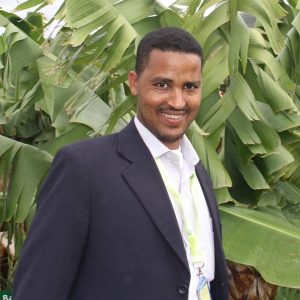
Kesatebrhan Asressu
Postdoctoral Research Associate
Kesatebrhan Haile Asressu received his M.Sc. degree in Organic Chemistry from Haramaya University, Ethiopia in July 2010. He completed his Ph.D. in Sustainable Chemical Science and Technology with specialization in Carbohydrate Chemistry under the supervision of Prof. Cheng-Chung Wang at Academia Sinica and National Yang Ming Chiao Tung University, Taiwan in January 2020. During his Ph.D. study, Kesatebrhan has worked in the development of synthetic methodologies for the synthesis of sialo-glycans. After his Ph.D graduation, he worked as Postdoctoral Research Associate at the Institute of Chemistry, Academia Sinica with Prof. Cheng-Chung Wang and has developed an efficient synthetic methods for the procurement of small molecules. Then, he moved to the University of North Carolina at Greensboro (UNCG), USA to further pursue a Postdoctoral Research with Prof. Qibin Zhang. During his position at UNCG, Kesatebrhan worked on the identification, quantification and synthesis of lipid standards containing very-long chain fatty acids. He joined SGC-UNC in December 2022.
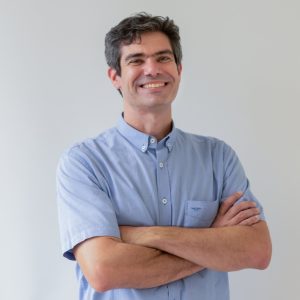
Rafael Lemos Miguez Couñago
Director of Biology, Research Associate Professor
Rafael M. Couñago, PhD, is a Principal Investigator at the SGC-UNC and Research Associate Professor in the Division of Chemical Biology and Medicinal Chemistry Department in the UNC Eshelman School of Pharmacy. Rafael´s research group at SGC-UNC uses protein biochemistry, structural biology and cell-based assays to illuminate protein function and explore new therapeutic strategies for human diseases. Current research at SGC-UNC is focused on enabling the discovery of new antiviral compounds and realizing SGC´s vision for Target 2035, an open science initiative that aims to create chemical and biological tools for every protein in the human genome with the goal of informing drug discovery (https://www.target2035.net/). Rafael joined SGC-UNC after working as a Principal Investigator at the Center of Medicinal Chemistry at the University of Campinas, São Paulo, Brazil. Prior to that, Rafael served as Team Leader and CSO at SGC-UNICAMP, and was a post-doctoral researcher at the laboratories of Bostjan Kobe at the University of Queensland, Australia; Kurt Krause at Otago University, New Zealand, and Youssif Shamoo at Rice University, USA. Rafael has a strong track record in recombinant protein production, biochemical and cellular assay development, and protein structure determination. Rafael has participated in a number of early-stage drug discovery projects in collaboration with both academic and industrial partners. Bibliography link.
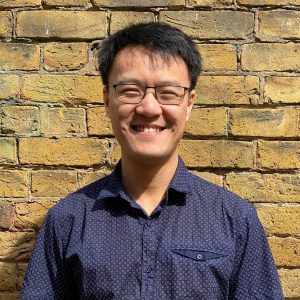
Edwin Tse
Postdoctoral Research Associate
Edwin received his Bachelor’s degree with an Honours research project in catalysis from The University of Sydney in 2015. He then completed his Ph.D. at the same institution with Prof. Matthew Todd and Prof. Peter Rutledge as part of the Open Source Malaria project. He then moved to University College London as a research assistant in drug discovery leading an open source drug discovery competition to find novel antimalarials. In 2021 he began his postdoctoral research at UCL expanding his research areas to Prof. Todd’s Open Source Antibiotics and Antiviral projects. He joined SGC-UNC in May 2023.
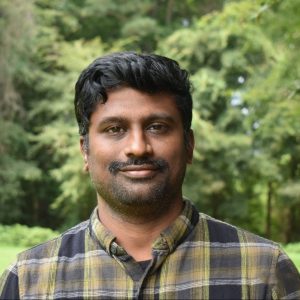
Muthu Ramalingam
Postdoctoral Research Associate
Muthu Ramalingam received his Ph.D. from the University of Madras under the guidance of Prof. A.K. Mohanakrishnan. During his Ph.D. program, he conducted research focused on the total synthesis and SAR studies of indole alkaloids. After graduation, he moved to IIT Madras, India, to explore metal-based dehydrogenative studies with Dr. Baidya. Subsequently, he pursued further postdoctoral research with Prof. Yu Yuan at the University of Central Florida, USA, to explore the design and synthesis of macrocycles and peptidomimetics for the treatment of antimalarial compounds. He joined SGC-UNC in March 2023.
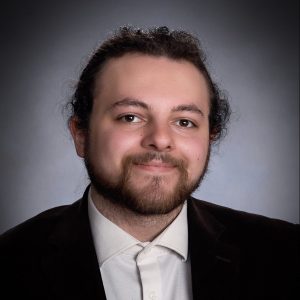
Raymond Flax
Doctoral Student
Raymond Flax, graduated from SUNY College of Environmental Sciences and Forestry, summa cum laude, with a Bachelor of Science Honors in chemistry with a focus in organic chemistry in 2022. His Honors thesis, under the pedagogy of Dr. Rachel Steinhardt at Syracuse University, was establishing stably expressing HEK293T cell lines, encoding fluorescently tagged dopamine and serotonin receptors. Alongside, dabbling in the world of medicinal chemistry, synthesizing, and evaluating photoaffinity pharmaceutical probes to identify targets of Parkinson’s drugs. Raymond now enters his second year in the chemical biology & medicinal chemistry program developing kinase inhibitors for TTBK1/2 and PAK respectively.

Anirban Ghoshal
Postdoctoral Research Associate
Anirban obtained his PhD from Indian Institute of Chemical Technology, Hyderabad, India (2021) and his work was focused on the synthesis of privileged heterocycles through novel isocyanide-based multicomponent reactions. Post-PhD, he worked as a Research Scientist in TCG Lifesciences, India (2021-22) before moving to US for postdoctoral studies. He worked as a Post-doctoral Associate at University of Miami Miller School of Medicine, Florida (2022-23) towards the development of novel GAK modulators. Anirban joined SGC-UNC in March 2023 and has been working towards developing small molecule drug leads within the READDI Antiviral Drug Discovery Center.
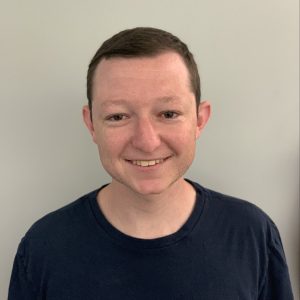
Peter Rosston
Doctoral Student
Peter Rosston obtained his Bachelor’s degree in Chemistry from Washington University in St. Louis (Wash U) in 2019. There he joined the lab of Dr. Kevin Moeller and worked on a project involving the total synthesis of an analog to a natural product GPCR inhibitor. After graduation, Peter moved to the Stanford Medicinal Chemistry Knowledge Center. His projects there involved the design and synthesis of a novel lanthanide chelate in collaboration with Dr. Pehr Harbury, as well as a collaboration with Dr. Michael Fischbach based around characterizing the most abundant small molecules that make up the human gut microbiome. Peter joined SGC-UNC in November, 2022 from the Department of Chemistry, and is now working with Dr. David Drewry on understudied kinases.

Jeffery Smith
Research Associate
Jeff obtained his BS in Chemistry from Northern Kentucky University and his Masters in Biochemistry & Biophysics from Texas A&M university. Jeff moved to NC in 2001 and worked for GSK focusing on SAR assays for kinases and other targets. He started with SGC-UNC during covid in the fall of 2020.
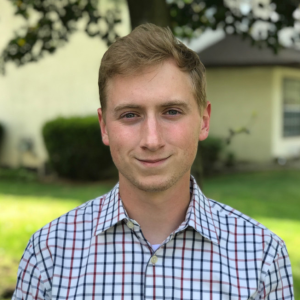
David Shirley
Doctoral Student
David earned his Bachelor’s degree in Biochemistry from Rowan University in 2019. During his undergraduate, he worked under Gregory A. Caputo studying synthesis and evaluation of amphiphilic peptides as antimicrobial agents and photovoltaic devices. He joined the SGC-UNC in 2023 as a 5th year graduate student in the Chemical Biology and Medicinal Chemistry program working alongside Tim Willson exploring the fungal kinome.
Former SGC-UNC Employees – Where are they now?
- Yi Liang is an Associate Director with Wuxi Apptech in Wuhan City, China.
- Christopher Asquith is a Postdoc Research Associate in Gary Johnson’s Pharmacology lab in the UNC School of Medicine.
- Carla Alamillo Ferrer is a Research Scientist with Eurofins Villapharma in Fuente Álamo de Murchia, Spain.
- William Zuercher, Associate Professor, moved to Switzerland with his family.
- Sean O’Byrne is a medicinal chemist with the drug discovery unit in the University of Dundee, Scotland.
- Joseph Pilotte, Cell Biologist, accepted a position with a local biotechnical start-up.
- Louisa Temme is Project leader in the Department of Pharmaceutical and Medicinal Chemistry at the University of Münster, Germany.
- Benjamin Eduful is a scientist at Hager Biosciences in Pennsylvania.
- Carrow Wells is working at GlaxoSmithKline in Pennsylvania.
- Alfredo Picado is a scientist at Loxo Oncology in Boulder, Colo.
- Joel Annor-Gyamfi is an R&D Chemist with Sterling Pharma Solutions in Cary, NC.
- Vamshi Sammeta is a staff scientist at the Fredrick National Laboratory in Maryland.
- Hebaallah Agha relocated to the Northwest United States with her family.
- Xuan Yang is a scientist at Arrakis Therapeutics in Waltham, MA.
- Kareem Galal is a Research Scientist at Sterling Pharma Solutions in Cary, NC.
Lab philosophy
The SGC-UNC is an open science chemical biology lab that seeks to illuminate the dark proteins of the human genome through the generation and distribution of chemical tools and reagents to the scientific community. The lab operates as the US site of the Structural Genomics Consortium and embraces its extreme open science policy. The PI’s at the SGC-UNC have a long and successful history of working together as a team in both academia and industry. Through our collective experience of drug discovery, we have a wealth of medicinal chemistry and chemical biology knowledge to impart to our students, post-docs, and visiting scientists. While we each design, lead, and nurture individual projects, the collaborative nature of our work and our shared mission means we work closely (side by side!) with each other in pursuit of the team goals. This philosophy allows us to take advantage of our individual strengths, experiences, and approach to science, support each other, move ahead thoughtfully, and proceed quickly in concert towards our goals. Mentoring in the lab occurs by several mechanisms: through direct supervision, informal discussion, and group meetings. We each seek to tailor our mentoring style to individual scientists and adjust it over time for each scientist as they need. The crucial component of this is regular communication. We believe it is essential to have a scheduled weekly meeting between each student/post-doc and their direct supervisor. This may be for as little as 10 min or as much as several hours depending on the input and feedback that is warranted. The scientific development of students and post-docs is a primary goal of the lab. From this all else follows.
SGC-UNC Lab Goals
- Illuminate the dark proteins of the human genome through open science
- Fulfill team members’ goals for advancement
- Contribute to the organizational goals of the SGC
- Be good citizens of the UNC Eshelman School of Pharmacy community
- Consistently publish articles in leading journals
- Maintain consistent external funding
- Train post-docs and students for a successful career
- Graduate all students in a timely manner
- Prepare undergraduates for graduate programs by mentoring them as researchers
- Support our collaborators and the scientific community through open sharing of data and reagents
We view our relationship with students and postdocs as a partnership. Our job is to ensure people in the lab get the training and opportunities they need to advance in their chosen careers, whether in academia, industry, teaching, or other options.
Below you can find information on the lab philosophy and expectations of lab members.
Open Science
Open science guides the way we practice science and maintain the quality of our work. Openness is what sets the SGC apart from other academic labs. Our goal is to distribute reagents and data without restrictions to the community and to enable other scientists to make immediate use of our discoveries. The SGC operates a ‘no patent’ policy, and as a result you can openly discuss your research with any scientist and there is no institutional delay to publication of your research. We deposit copies of all manuscripts on preprint servers as soon as they are ready for submission so that publication of our research is not delayed by the review process. We encourage all students and post-docs to contribute regular posts to openlabnotebooks. Not only is this good for the visibility of the lab, but it is great practice for writing papers and preparing you for job interviews. We expect members of the lab to embrace the practice of open science in all aspects of their research
General Rules
Safety first
Your health and safety are more important than your research. This includes adhering to lab safety codes, as well as maintaining your physical and mental health. Never work in the lab if you are feeling sick, under medication that might affect your ability to work normally and definitely not under the influence of any kind of drugs. Avoid working in the lab by yourself doing potentially dangerous activities, and please be aware of UNC online resources for general lab safety. Additional information specific to the SGC lab is available online (onyen required). A printed copy of our lab safety guide is located in GMB 1062. You are expected to complete all mandatory safety training. We conduct periodic safety walkthroughs of the lab to identify potential hazards, which must be corrected on the spot or upon notification. Lab members are expected to adhere to lab safety rules at all times, which includes wearing of the required personal protective equipment (lab coat, safety glasses, and gloves). If you need any assistance please call 911 for an emergency from any campus phone or for non-emergencies dial 919-962-6565.
Respect
We expect lab members to contribute to a productive and friendly environment conducive to learning and research. This includes treating your colleagues with respect, listening to others’ viewpoints and ideas, and ensuring the lab is a place where everybody feels welcome and appreciated. Racist, sexist, or other inappropriate comments or behavior will not be tolerated under any circumstance. The university provides a number of resources (confidential and otherwise) to report or discuss any such activity you feel is inappropriate. If you witness inappropriate behavior or feel intimidated, please seek help and report it.
Lab citizenship
All members are assigned group jobs and responsibilities. These should be taken seriously; one person not doing their group assignment can have a large impact on the whole group. Current tasks include helping with supply and reagent ordering, equipment maintenance, chemical inventory, submission of compounds for physicochemical properties and collation of data, assisting the safety walkthrough, and keeping common areas clean. Current group assignments are listed below:
- Supply ordering (ePro) – Julie Pickett
- Supply ordering (non ePro) – Christine Schwarz
- LC/MS – Alfredo Picado
- Chemical inventory – TBD
- Physiochemical data – TBD
- Safety Walkthrough – Chris Asquith
- Common areas & pumps – Chris Asquith
- Microwave – Ben Eduful
- Biotage/ISCO – Louisa Temme
In addition, each lab member has the following individual accountabilities:
- Monthly flush of eyewashes in the lab area
- To inventory all new chemicals in ChemInventory immediately upon receipt
- To inventory advanced synthetic intermediates upon completion of a project or prior to leaving the lab
- To maintain a detailed and accurate electronic lab notebook, including directories of analytical data and spectra, that is accessible to their direct supervisor
- To maintain a list in a shared area of final products (compound registry number based on notebook page, SMILES string, MW, amount solid submitted)
- To make a 10 mM DMSO stock of each final product made (soon after purification and characterizations) for screening and storage
- To participate in annual lab clean-up (or more often if required)
- To contribute monthly posts to openlabnotebooks
- To present periodic project updates at lab meeting
Expectations (for all members)
Work hours
We are lucky enough to work in an area where flexible working hours are the norm. In order to be able to interact with the other scientists in the lab, we expect lab members to be present the majority of normal business hours (9-5pm) during the work week, since this is when most research activities occur. There may be times when your project requires work outside of the core hours or on the weekends. Our philosophy is that productivity is much more important than hours. Don’t worry about your labmates’ schedules. Each individual person goes through phases of more and less intense work based on deadlines and commitments. Part of your training is the ability to recognize those times when an intense effort is required to complete a series of experiments, submit a grant application, or publish a paper. However, you must also balance those efforts with periods of relative calm where you have time to think and reflect on your research, for it is often during these times that you will conceive your best ideas. It is important to remember that the synthesis of new compounds and the screening data generated on these compounds is the currency that allows us to make new discoveries. Thoughtful, creative, and efficient compound synthesis drives new data collection and is the key to successful progression of your research.
It is very important that you take time off for personal life, vacations, and family time. The university has 12 holidays and you have 12 days of personal vacation per year. You may only exceed this allocation by exception and with written permission from your direct supervisor. You must also notify your direct supervisor if you will be absent during the normal work week for any reason, and let them know in advance of any extended leave. You must record your vacation days in the team OneDrive (lab member access only).
Seminars, journal clubs and other lab and institutional activities
Attendance to regular weekly lab meetings is expected of all lab members. Note that if you are funded on one of the lab’s current grants, you are expected to attend those meetings as well. There are a number of seminars (CBMC, Chemistry, Biochemistry, Pharmacology) each week. You are strongly encouraged to go regularly to one or more each week.
Conferences
Everyone is encouraged to attend at least one conference a year. Members of the lab regularly attend such meetings as the National ACS Meeting, Gordon Conferences, American Association for Cancer Research (AACR) meetings, and the National Medicinal Chemistry Symposium. Lab members must make a good faith effort to obtain partial to full costs of meeting and travel expenses. This includes applying for departmental, university, and society travel grants; volunteering at the conference; and sharing rooms. Whenever possible, we will help fund attendance at one conference per year for each member of the lab on the condition that you are presenting a poster or talk at the meeting. Abstracts must be reviewed by the lab PI’s and all coauthors at least a week prior to the submission deadline. Practice talks and posters will be presented to the lab two weeks prior to the conference. Please plan accordingly.
Authorship
The lab follows the IJME rules for authorship:
- Substantial contributions to the conception or design of the work; or the acquisition, analysis, or interpretation of data for the work; AND
- Drafting the work or revising it critically for important intellectual content; AND
- Final approval of the version to be published; AND
- Agreement to be accountable for all aspects of the work in ensuring that questions related to the accuracy or integrity of any part of the work are appropriately investigated and resolved.
Projects evolve over time and authorship inclusion and author order will be re-evaluated accordingly. If in doubt about whether your contributions to a paper warrant authorship, just ask. All final manuscripts should be reviewed by the lab PI’s prior to submission.
Specific rules for the different members of the lab
Postdocs and senior PhD students
Responsibilities of SGC-UNC lab PIs to postdocs and senior PhD students:
- Meet monthly to discuss progress & pitfalls
- Assist with identifying and writing postdoctoral fellowships.
- Develop project ideas, including independent projects that can be taken with the postdoc.
- Interpret results.
- Proof-read manuscripts.
- Discuss and support future career goals (e.g., do you want to teach, go into academia, industry, continue in research?), and plan ways to facilitate these goals.
- Ensure that the scientific goals of each project are clearly understood
- Provide quarterly feedback on progress and recalibrate expectations.
- Inclusion on appropriate meetings and communications related to their projects.
Our expectations of postdocs and senior PhD students:
- Prepare for monthly progress/pitfalls meetings.
- Understand the scientific background and rationale for all lab experiments.
- Contribute monthly posts to openlabnotebooks
- Organize compound progression meetings for Chemical Probe projects.
- Write and submit manuscripts. On average I expect your time as a postdoc in the lab to generate 2 papers per year (first or co-authored), and you should be pushing to achieve this.
- Proof-read manuscripts from other lab members.
- Apply for external funding (either individual postdoc fellowships or contributing to larger lab grant writing).
- Maintain a detailed and accurate electronic lab notebook, including directories of analytical data and spectra. These need to be sufficient to reproduce results without additional instructions. Make lab notebook accessible to supervisor. Cap each notebook at 100 experiments. Export a PDF copy of the lab notebook to the OneDrive whenever one is finished and upon departure from the lab.
- Obtain analytical data on all final compounds to support publication. Deposit PDF versions of all spectra on the OneDrive for back-up storage.
- Submit all final compounds and key intermediates in barcoded vials for storage PRIOR to departing from the lab
- Participate in general lab responsibilities (equipment maintenance, maintain common areas, taking turns hosting visitors). Participate in talk rehearsals of your colleagues.
- Optional, but encouraged: Mentor at least one undergraduate student or visiting scientist.
Junior PhD students
Responsibilities of SGC-UNC lab PIs to junior PhD students:
- Develop project ideas.
- Interpret results.
- Proof-read and contribute to writing of theses, abstracts and manuscripts.
- Discuss and support future career goals (e.g., do you want to teach, go into academia, continue in research?), and plan ways to facilitate these goals.
- Meet monthly to discuss progress and pitfalls.
- Ensure that the scientific goals of their project are clearly understood.
- Inclusion on appropriate meetings and communications related to their project.
Our expectations of junior PhD students:
- Prepare for our monthly progress/pitfalls meetings.
- Understand the scientific background and rationale for all lab experiments.
- Contribute monthly posts to openlabnotebooks
- Write and submit manuscripts. On average, I expect most students to produce three publications over the course of their PhD, including at least one first-author paper.
- Maintain a detailed and accurate electronic lab notebook, including directories of analytical data and spectra. These need to be sufficient to reproduce results without additional instructions. Make lab notebook accessible to supervisor. Cap each notebook at 100 experiments. Export a PDF copy of the lab notebook to the OneDrive whenever one is finished and upon departure from the lab.
- Obtain analytical data on all final compounds to support publication. Deposit PDF versions of all spectra on the OneDrive for back-up storage.
- Submit all final compounds and key intermediates in barcoded vials for storage PRIOR to departing from the lab.
- Write thesis in due time.
- Proof-read manuscripts from other lab members. Participate in talk rehearsals of your colleagues.
- Participate in general lab responsibilities (equipment maintenance, maintain common areas, taking turns hosting visitors). Participate in talk rehearsals of your colleagues.
- Present multiple research talks/posters at conferences over the course of your time in the lab. You are encouraged to do so annually, but this isn’t always possible.
- Optional, but encouraged: Mentor at least one undergraduate student.
SGC-UNC (Structural Genomics Consortium at the University of North Carolina)
120 Mason Farm Rd., CB# 7356
GMB 1070H, Chapel Hill, NC 27599-7356
Office Phone 919-962-5349
Chief Scientist/PI: Tim Willson, tim.willson@unc.edu
School : University of North Carolina at Chapel Hill Eshelman School of Pharmacy (ESOP)
Division : Chemical Biology and Medicinal Chemistry (CBMC)
Center : Structural Genomics Consortium (SGC-UNC)
Department Code : 452102
Location : Genetic Medicine Research Building (GMB)
HR Rep: Alekya Battula, Alekya@email.unc.edu
- Onboarding for Postdocs, Students, and Visiting Scientists
Laboratory Environment Training – pass all associated tests
Biological
4123 Autoclave Usage and Safety
5702 Dry Ice Shipping (for ALL)
Laboratory Safety
41401 Bloodborne Pathogens
4228 Chemical Fume Hoods
4137 Compressed Gas Safety
5521 Laboratory Chemical Waste Mgmt
5525 Laboratory Waste Management - Researcher Conflict of Interest Training
- Enroll at Lab Worker Registration Login
New Registration Form / Laboratory only / Tim Willson’s Lab
Hazardous Chemicals, Autoclave user - If you will be using the NMR Lab in Marsico, please contact Karl_Koshlap@unc.edu for training. Please tell him how much experience you have doing NMR (which instruments and for how long), and what days of the week and/or times of day you are not available for training. Upon completion, Karl will request access to Marsico (3rd floor and basement) on your SOM badge.
- Mandatory Training Checklist (not students)
EEO Training – Title IX Awareness and Violence Prevention Training
You will receive an email in 30-45 days from lawroom.com
ITS Security Training and Compliance
HIPPA Training - Sign up for an ORCiD if you do not already have one.
- Send a short bio and photo to the Center Administrator for use on this website.
FYI: Campus Safety
Postdoctoral Research Associate
Position Summary
SGC-UNC is looking to hire a highly motivated Medicinal Chemist or Chemical Biologist interested in expanding and deepening their skills. This postdoctoral associate will become a member of a multidisciplinary team working to advance chemical probes and new target discovery projects for understudied protein kinases. Candidates will be expected to carry out multi-step syntheses in order to develop structure-activity relationships.
Educational Requirements
PhD in Medicinal Chemistry, Chemical Biology, or a closely related discipline
Qualifications and Experience
Qualified applicants must have extensive experience in Medicinal Chemistry or Chemical Biology. Experience with basic cell biology techniques is desirable but not required.
Please apply at:
https://unc.peopleadmin.com/postings/138867
Postdoctoral Research Associate – Protein Biology
Position Summary
We seek highly motivated, enthusiastic individuals who have a Ph.D. degree in biological sciences to develop and run biochemical and cell-based assays to support optimization of chemical probes, including protein thermal stability and NanoBRET target engagement assays. This position offers an exciting opportunity to generate new research tools and data that will be made freely available to the research community. The ideal candidate must have a track record of impactful scientific contributions, outstanding communication skills, strong problem-solving skills, and the ability to collaborate with scientists across other disciplines.
Educational Requirements
PhD in molecular biology, biological sciences or related field of study
Qualifications and Experience
Ability to work effectively in a multidisciplinary team environment and adapt to changes in work priorities. Strong written and oral communication skills. Present data internally and contribute to external publications when appropriate. Prior experience in developing and running screening assays to support chemistry projects is required.
Please apply at:
https://unc.peopleadmin.com/postings/250423


